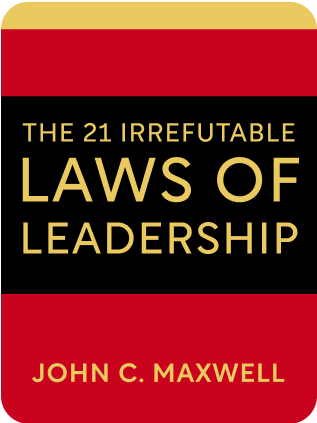

This article is an excerpt from the Shortform book guide to "The 21 Irrefutable Laws Of Leadership" by John C. Maxwell. Shortform has the world's best summaries and analyses of books you should be reading.
Like this article? Sign up for a free trial here .
What is the Law of Addition? Do you think a leader’s motivations matter? Is the end result more important than whatever happened to achieve it?
The Law of Addition is the fifth law of leadership in John C. Maxwell’s book The 21 Irrefutable Laws of Leadership. The Law of Addition states that a truly great leader leads by adding value and serving others rather than climbing the ranks.
Keep reading to learn about the Law of Addition plus some real-world examples of its application.
The Law of Addition: What a Leader Brings to the Table
Maxwell believes that true leadership is measured by how much we serve others, not how far we advance ourselves. If you’re in charge of people, you’re affecting them, and never neutrally. You’re always having an additive (positive) or subtractive (negative) effect. Often subtractors aren’t aware that they’re negatively affecting others. However, leaders who positively affect their followers are nearly always doing it intentionally, because it takes work. By nature human beings are selfish. To care for others, it takes conscious effort to prioritize their needs above your own. And as a leader, you’re often the only person who can serve people in a particular way.
When you serve others, you benefit too. Serving creates a sense of fulfillment in the leader, and helps her put together a cohesive, loyal team free of conflict and sans followers with questionable motivations.
There are four guidelines to applying the Law of Addition:
● Show people that you care for them. Never abuse anyone, and regularly demonstrate that you care about your followers.
○ For example, when you arrive at work, say hello to everyone every day. ● Develop valuable skills so that you can share them with others. Work on yourself. Improve your skills so you can offer better advice and mentorship.
● Learn what’s important to the people you lead. Listen to people and learn about their hopes and dreams.
○ For example, if you’re sending someone to a professional development conference, send them to an event that covers something they’re interested in. ● Do things that God values. (Maxwell says skip this one if you find this irrelevant or ineffective). Scripture contains many passages and parables that describe how God wants us to treat people.
○ For example, Jesus once washed his disciples’ feet, showing that he cared deeply for his followers.
Example of a Failed Application of the Law: Fed-Mart
Each week, the chairman of Fed-Mart schedules a meeting to purposely “raise hell” about problems in stores to see how his managers react. One manager took credit for his employees’ achievements and blamed them for problems. The manager was fired. The manager didn’t care about his employees, and the chairman knew that successes and failures don’t rest on a single person’s shoulders.
Example of a Successful Application of the Law: Jim Sinegal
Sinegal is the CEO of Costco. He was successful because he kept costs low, didn’t advertise, prioritized high volume sales, and offered a limited number of products. These ideas weren’t that revolutionary, though—where he stands out is in his treatment of employees.
Sinegal pays his employees well (42% more than the company’s chief rival pays) and offers good benefits. He has an open-door policy, knows all of his employees’ names, and once flew to San Francisco when a Costco exec was hospitalized. In short, he cares about his employees. And as a result, he’s collected good, productive team members who are loyal to the company.
Additional Examples
● Dan Cathy, president of Chick-fil-A—Cathy once called Maxwell and asked how his organization could help Maxwell’s. Cathy never formally led Maxwell—they didn’t evenwork for the same company—but Cathy believed in serving others so much that he went beyond the people in his organization.

———End of Preview———
Like what you just read? Read the rest of the world's best book summary and analysis of John C. Maxwell's "The 21 Irrefutable Laws Of Leadership" at Shortform .
Here's what you'll find in our full The 21 Irrefutable Laws Of Leadership summary :
- Why working with people is the only way to do meaningful work
- How to become the kind of person that can get things done
- Why you don't need to be good at all the laws of leadership to be a good leader






